Shopify Store Future-Proofing: Stay Ahead of E-Commerce Trends

Content Writer and Graphic Designer

In today's fast-growing and continuously changing e-commerce marketplaces, preserving a competitive edge and adapting to new trends are essential. From store design to SEO and monitoring, e-commerce regularly changes with new trends and technologies e.g., Google continuously updates its ranking algorithm. As a store owner, you need to stay up-to-date with new changes.
Shopify Store Future-Proofing is the process of designing and structuring stores in such a way that they easily adapt to new market trends and technologies. Future-proofing Shopify stores are competitive and scalable.
In this blog, we'll dive deep into Shopify store future-proofing. How strategic steps ensure your e-commerce platform is competitive, flexible, and scalable.
The Future Of Shopify: Trends In AI, Automation, And Personalized Shopping Experiences
Shopify evolving its platform with the latest technologies to meet future needs. From AI tools to automation and personalized shopping experience; Shopify is updating with demanding trends.
AI-Driven Innovations in Shopify
Shopify uses artificial intelligence (AI) to automate and optimize operations. Shopify stores use AI smart tools to analyze data and improve customer engagement and businesses. There are the following key AI trends:
- Smart Product Recommendation: Shopify uses various AI-driven tools that continuously track customer behavior. These tools suggest product recommendations according to customer search history and preference. Nosto and Rebuy are the AI apps in Shopify for smart product recommendations.
- Dynamic Pricing Models: Shopify uses AI to adjust competitor prices and inventory levels. It modifies prices in real-time on demand using AI-driven tools.
- Chatbots and Virtual Assistants: Artificial intelligence chatbots are instant and provide customer support 24/7. These chatbots help buyers by addressing their queries and assisting with checkouts. They also provide product recommendations by analyzing customer behavior. Tidio and Heyday are popular virtual assistant AI tools in the Shopify app store.
- Predictive Analysis: There are different machine learning AI-driven tools in Shopify that provide predictive analysis. These AI tools predict sales trends and inventory needs. It enables businesses to make data-driven decisions.
Automation Transforming Shopify Operations
Automation is becoming an important part of Shopify. Shopify automates and streamlines various tasks using technology and software. These tools automate inventory management, orders, and payment processing. Automation saves the store owner time and reduces manual tasks. Various automation trends are the following:
- Order Fulfillment Automation: Shopify offers various apps for automating order processing, packaging, and shipping. ShipStation and Deliverr are tools to automate order fulfillment tasks.
- Inventory and Stock Management: AI-driven tools in Shopify monitor inventory in real time. These features automate reordering and prevent overstocking or stockouts. Dropshipping apps like Oberlo automate inventory management tasks.
- Marketing Automation:Shopify tools like Klaviyo and Omnisend allow stores to do marketing automation. They automate email campaigns, customer segmentation, and abandoned cart recovery.
- Customer Feedback Automation: Shopify automates customer feedback using various tools like Loox and Judge.me. These apps automatically collect and display reviews to buyers. It helps Shopify stores to build customer trust.
Personalized Shopping Experiences on Shopify
Personalization is the process of customizing customer experiences or marketing communications for specific groups based on their preferences. It is the future of e-commerce businesses. Shopify offers various tools to merchants for customized shopping experiences to boost engagement.
- Personalized Email Campaigns:Shopify offers personalized product recommendations and offers to customers through mail. Shopify apps like Drip help in personalized email campaigns. It allows Shopify stores to grow revenue and automated mail.
- Customized Landing Page:A customized landing page is a web page, designed to convert visitors into buyers. Store owners create unique landing pages for potential customers using apps like PageFly.
- Augmented Reality (AR) Experiences:AR is a toolkit that adds virtual elements to a customer's real environment. It allows them to interact with products or brands. AR creates engaging shopping experiences for customers.
- Loyalty Programs and Gamification:Loyalty programs and gamification personalize the shopping experience in Shopify. Gamification is a marketing strategy. Online stores use gamification techniques to create a game-like environment to engage visitors. It helps store owners promote their loyalty and increase sales. Apps like Smile.io help in making loyalty and reward programs. It converts first-time visitors into forever customers.
Latest Technologies Shaping the Future of Shopify
Latest technologies shaping the future of Shopify. It transforming how businesses connect and operate with customers and manage their processes. Here are emerging technologies shaping the future of Shopify:
Artificaial Intelligence (AI)
AI is a game-changer for the Shopify platform. It offers a personalized shopping experience and improves customer service. Various AI-driven tools like chatbots provide real-time help. These AI tools offer product recommendations and predictive analysis. AI improves pricing optimization and inventory management. It helps businesses to make data-driven decisions.
Blockchain
Blockchain is an advanced technology that shaping the Shopify future. Blockchain reduces the risk of fraud. It provides automation, transparency, and security in transactions. Blockchain improves the supply chain visibility and allows customers to track products. This technology helps Shopify stores to increase customers' trust which promotes brand loyalty.
Cloud Computing
Cloud computing allows Shopify to improve its operations and performance during high traffic. E-commerce platforms can seamlessly add new functions by adopting cloud-based technology. Cloud-based data analytics and storage provide businesses with useful insights. This analysis helps in data-driven decisions to improve customer experiences.
5G Network
The 5G network provides super-fast data transfer and low latency. The arrival of 5G has completely transformed the e-commerce businesses. The 5G makes the mobile shopping experience very fast and smooth. It reduces loading time and improves connectivity. High-quality features like AR product pages load quickly with a 5G network.
Internet of Things (IoT)
IoT is changing the e-commerce environment by providing a smarter and engaging shopping experience. IoT improves inventory management by monitoring real-time stock levels. It prevents stockouts and helps online stores to restock. IoT integration in Shopify logistics offers to speed up delivery time. It improves tracking and increases customer satisfaction.
Robotic Process Automation (RPA)
RPA automates repetitive tasks and allows Shopify to improve productivity. RPA bots optimize operations like processing orders and managing invoices. It saves the time of online stores by reducing manual tasks.
The Function of New Technologies in Future-Proofing
New technologies play an essential role in Shopify store future-proofing. They help businesses to stay competitive and adapt to new updates. These technologies ensure the long-term growth of e-commerce stores.
Enhance Scalability:
New technologies like cloud computing and AI-powered tools enhance scalability. These technologies handle data and increase traffic without interruptions. AI-driven tools automate repetitive tasks and decrease workload.
Automating Operations:
New technologies automate the manual tasks to reduce errors and save time. Most AI tools automate order fulfillment processes and inventory management.
Improving Customer Experience:
Innovative tools improve customer experience by creating engaging and personalized shopping experiences. The personalized engines customize product recommendations based on customer behavior.
Strengthening Security:
New technologies like AI-driven fraud detection and blockchain identify suspicious transactions. It secures sensitive information and payment processes.
Adapting Market Trends:
Emerging technologies help e-commerce stores to adopt new market trends. Latest trends like voice search optimization allow visitors to shop online using voice features. Other trends like social commerce tools allow stores to sell on platforms like TikTok or Instagram.
How to Optimize And Update Your Shopify Store to Stay Competitive
Optimizing and updating Shopify stores are important for future success. The Shopify stores adopt forward-thinking strategies and emerging technologies to stay competitive. There are the following strategies that help Shopify to stay ahead in the fast-growing market:
- Shopify merchants update their stores with emerging technologies. Trends like AR, voice search, and blockchain update Shopify stores to stay competitive.
- Advanced personalization adoption like AI-driven recommendations and chatbots helps online stores stay ahead.
- Shopify stores optimize omnichannel commerce. Seamless app integration, secure inventory, and pickup options make online stores stay ahead.
- Enhancing mobile features improves the shopping experience. In today's world, most people use mobile for shopping. Optimizing mobile features like progressive web apps (PWA), 5G-optimized media, and mobile wallets can give a strong edge to businesses.
- To stay competitive, Shopify stores invest in loyalty programs and gamification. Engaging and game-like content converts customers to buyers.
- Shopify store optimizes the security features to protect customer data. This step builds customer trust and brand reputation. Customers feel secure about their data and feel free to shop again from your store.
Improve and update your Shopify store to stay competitive, not only for today but also in the future. You'll ensure that your online store is adaptable the future trends and technologies.
The Essential Of Scalability And Flexibility In A Shopify Store For Future Growth
In a fast-paced e-commerce world, scalability and flexibility are important for future growth. They ensure to handle the increased demand and traffic and adapt to market trends.
Scalability ensures that online stores can manage high-volume traffic without performance issues. Scalable Shopify stores easily handle the growing product catalogs. Scalability improves the customer experience by ensuring a fast platform. It enhances customer engagement and satisfaction.
Flexibility ensures that Shopify stores evolve with new trends according to customer expectations. It enables online stores to integrate new services, features, and technologies. Flexible stores experiment with new strategies like testing new designs or marketing strategies.
Building Scalability and Flexibility in Shopify Store
- Select the right Shopify plan that matches your business needs but scales as you grow. For future Shopify growth, ensure to access the high API limit, advanced reporting, and unlimited bandwidth.
- Choose scalable and reliable apps with proven performance. Use Shopify API to integrate custom solutions and third-party tools for future growth.
- Optimize the Shopify stores for high traffic. Use fast-loading themes and apps to manage large user volumes.
- Automation helps to build scalability and flexibility in Shopify stores for future growth.
- Use omnichannel strategies to expand sales by integrating stores with various platforms.
- Use customizing themes and apps that allow upgradation without extensive code. This flexibility makes it easier to replace or upgrade functionalities.
Scalable and flexible stores seamlessly expand themselves with changing market trends. By adopting emerging technologies, Shopify stores stay competitive. Shopify stores with scalability and flexibility features can easily handle future challenges.
Get 0 to 1 with your Shopify Store
We love working with companies looking to succeed at Shopify
More Articles
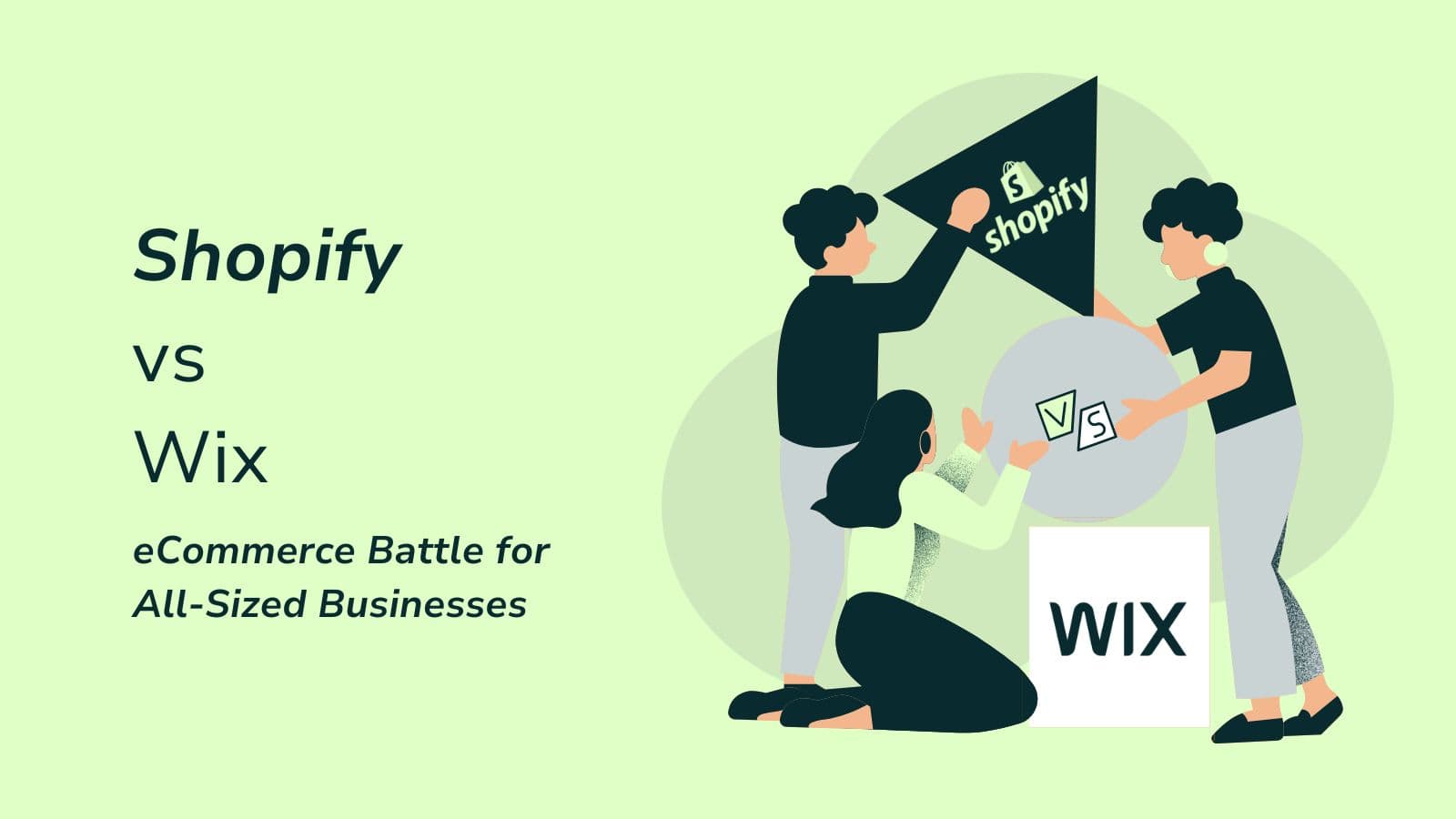
comparison
Shopify vs Wix: eCommerce Battle for All-Sized Businesses
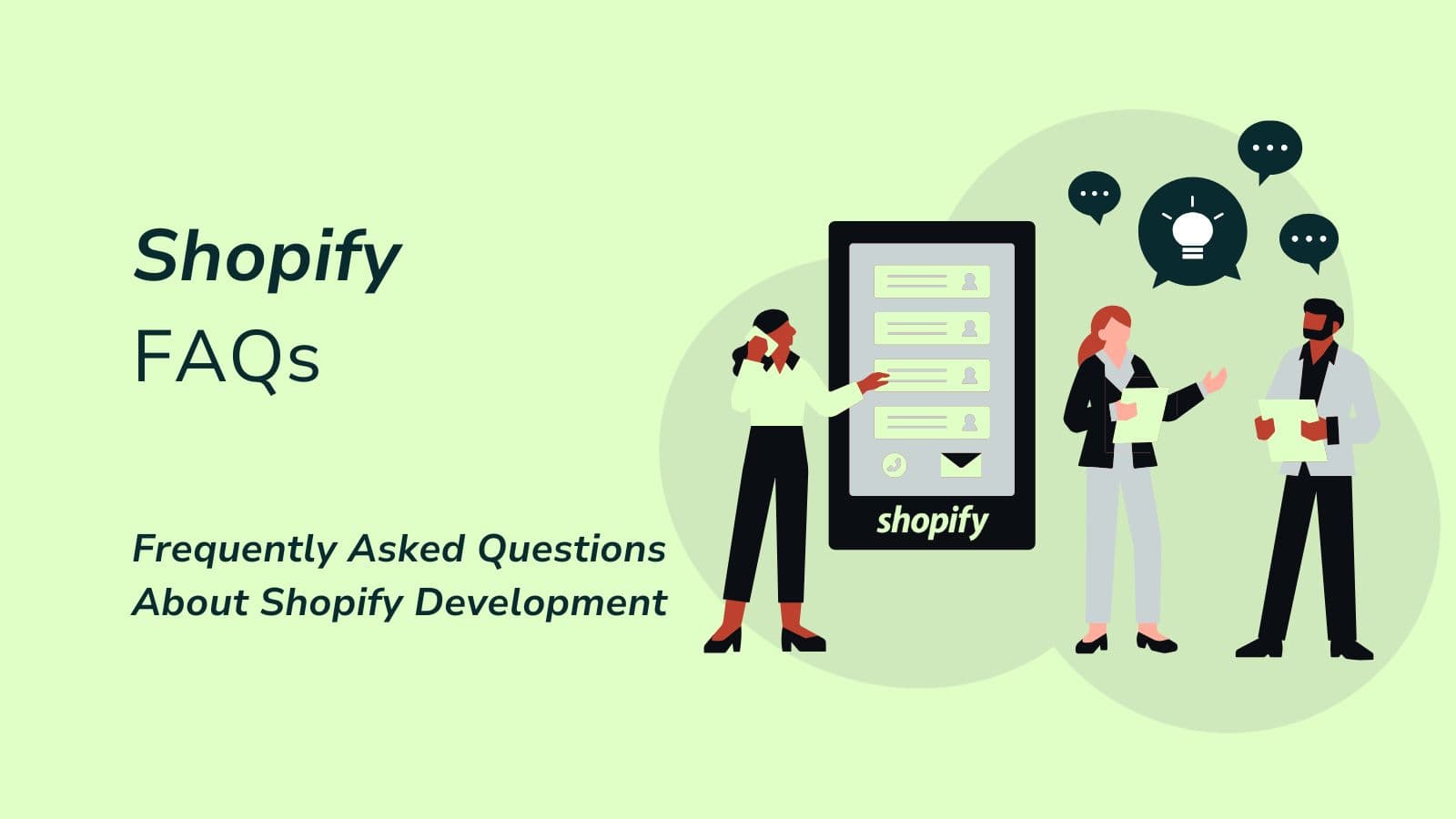
comparison
Shopify FAQs: Frequently Asked Questions About Shopify Development
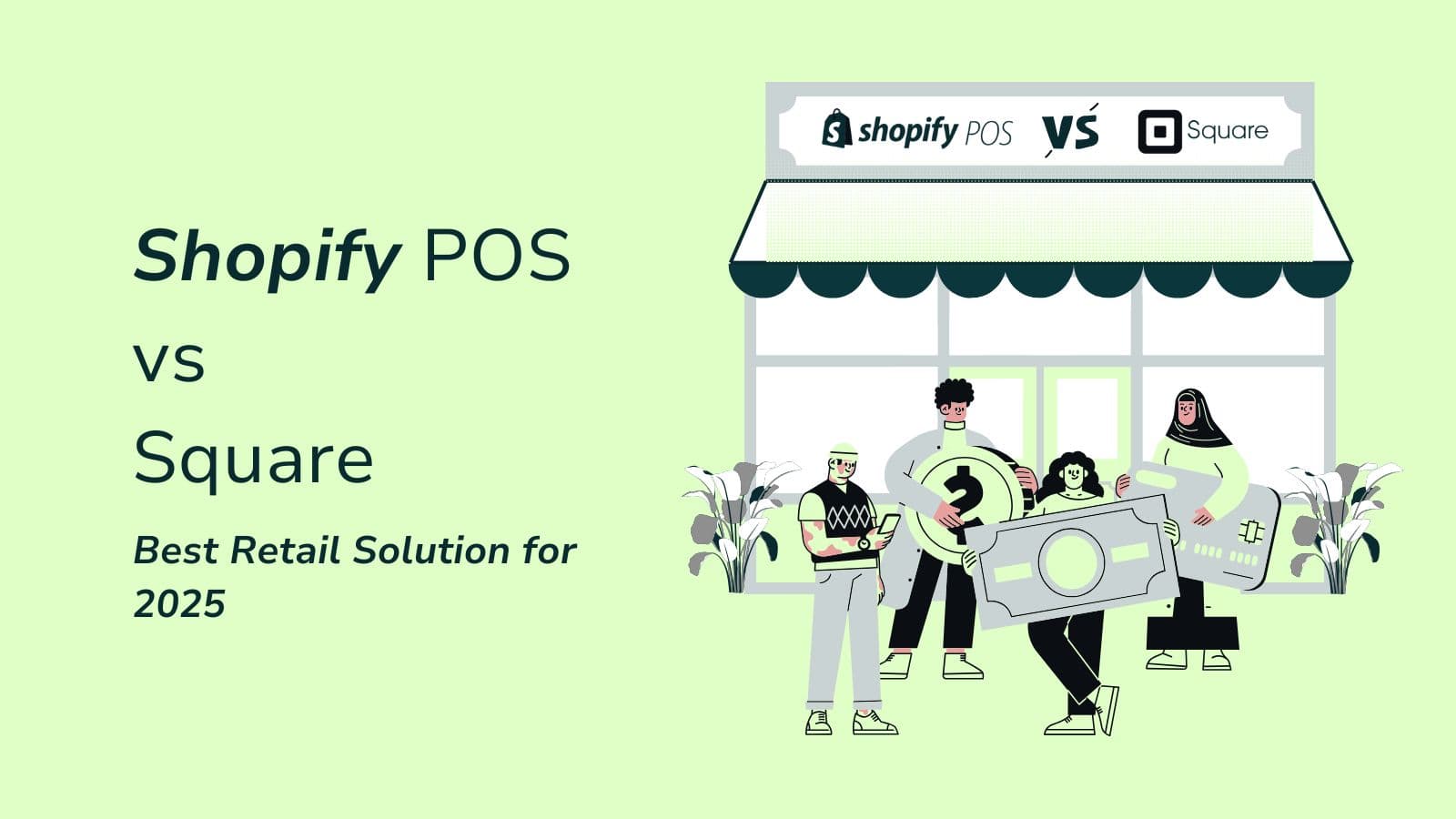
comparison
Shopify POS vs Square: Best Retail Solution for 2025
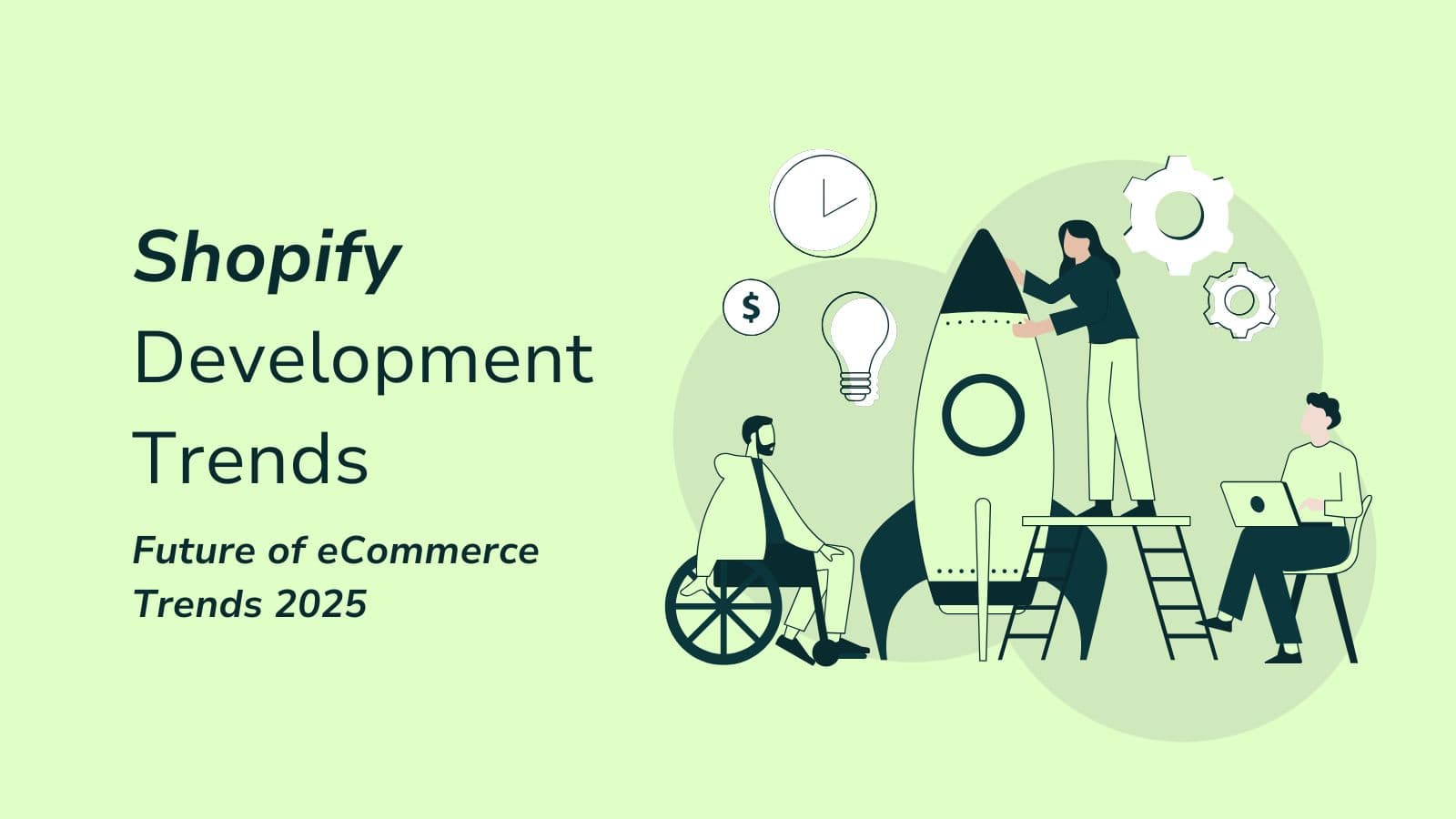
marketing
Future of eCommerce Trends 2025: Stay ahead in Shopify development
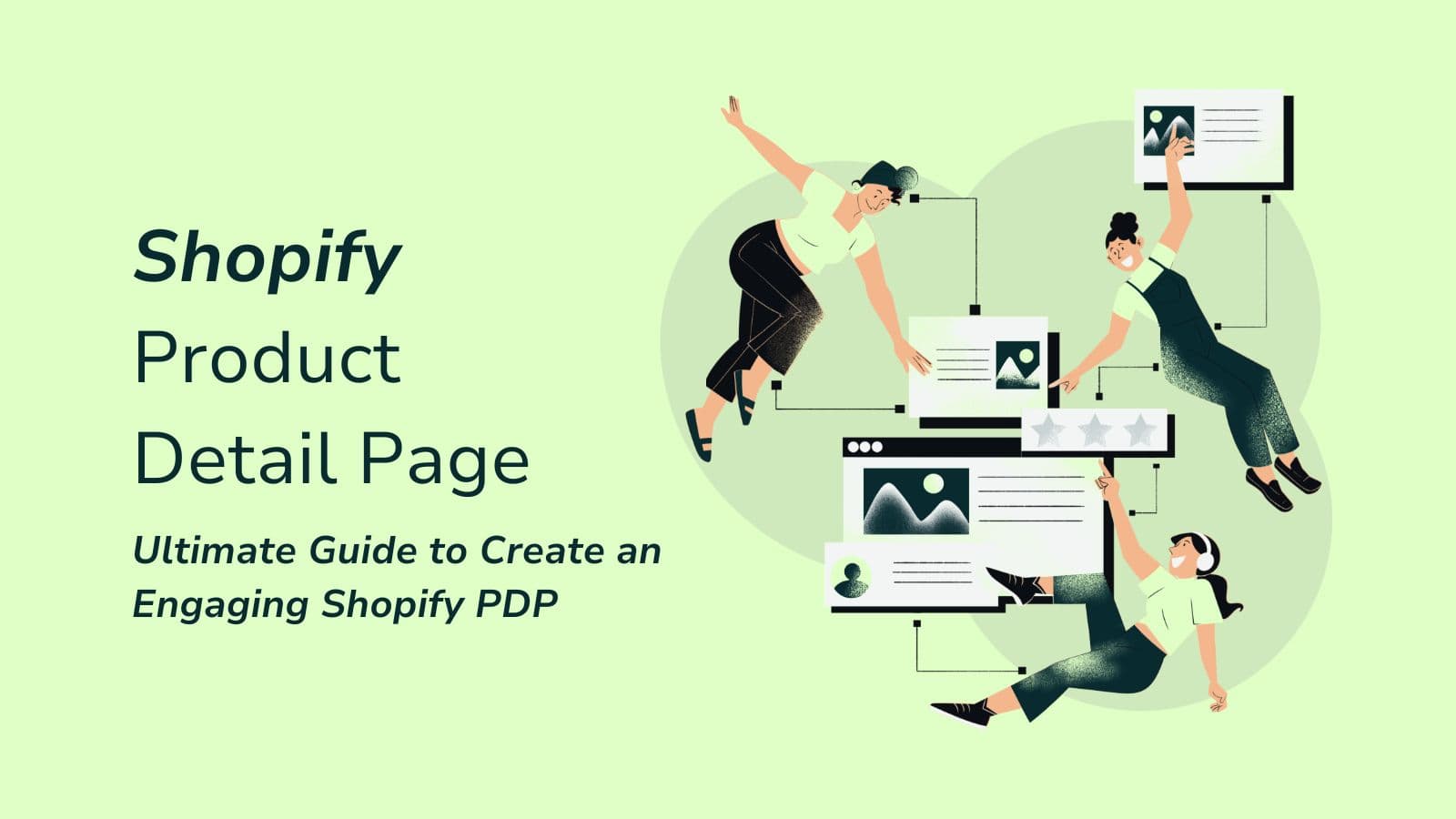
development
How to Create an Engaging Shopify Product Detail Page (PDP)
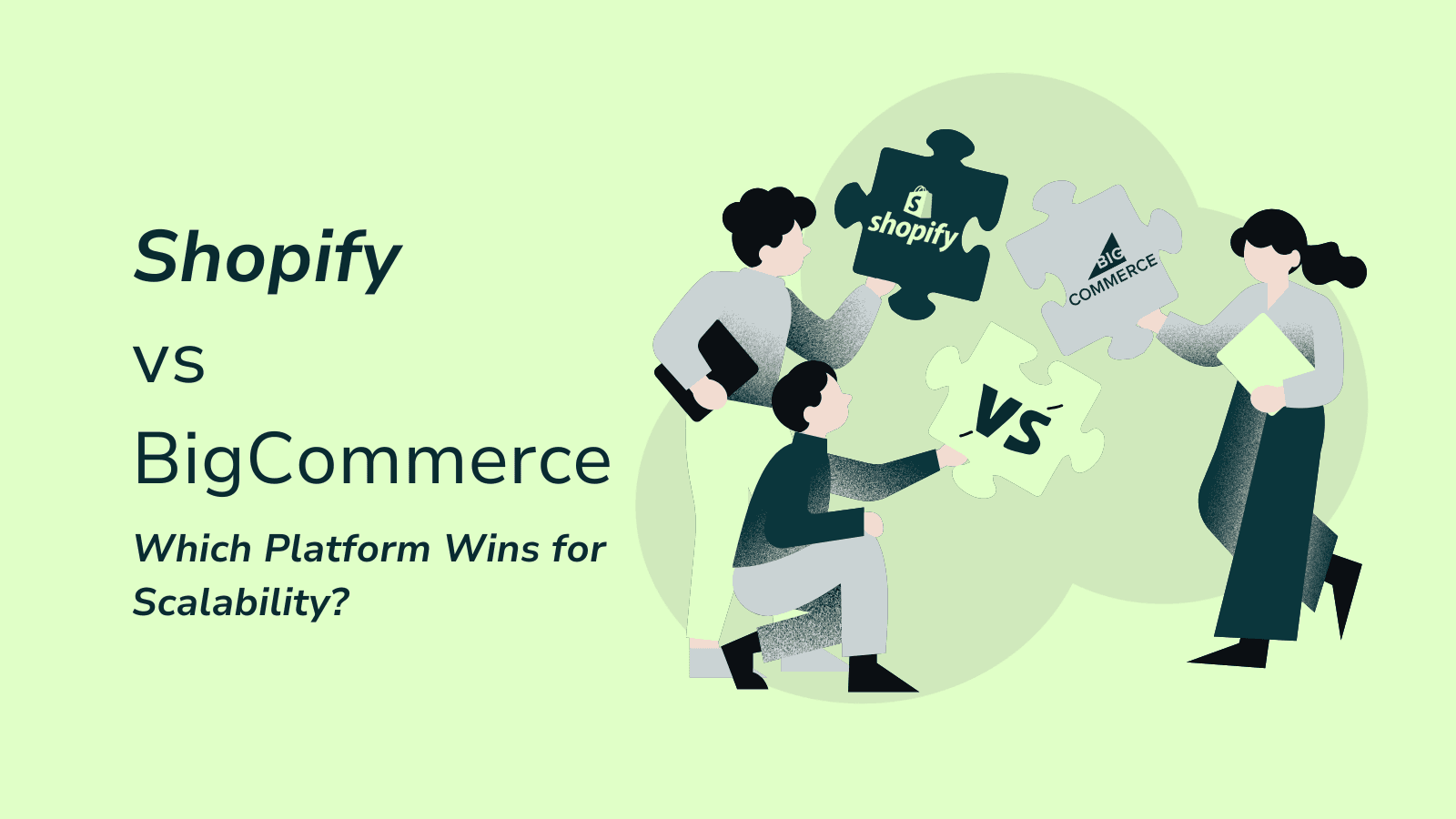
comparison
Shopify vs. BigCommerce: Which Platform Wins for Scalability?
Frequently Asked Questions
We Know Everything Shopify!
What do we get in the FREE Consultation?
In general, anything you need to know. Having built over 50 Shopify stores allows us to give you advice on any matter you seek when it comes to eCommerce and conversions.
How long does it take to build a custom Shopify store?
The timeline for building a custom Shopify store can vary based on complexity and specific requirements. Generally, it takes anywhere from 2 to 6 weeks to complete a fully functional store, including design, development, and testing.
Can you help with migrating our existing store from another platform to Shopify?
Absolutely! We specialize in seamless store migrations from various eCommerce platforms to Shopify. We ensure that all your data, including products, customers, and orders, are transferred securely and efficiently.
What kind of support do you offer after the store is launched?
After launch, we provide ongoing support that includes troubleshooting, updates, and answering any questions you may have. Our goal is to ensure your store runs smoothly and meets your evolving needs.
Do you provide ongoing maintenance and updates for our eCommerce store?
Yes! We offer maintenance packages that include regular updates, performance checks, and troubleshooting to keep your store optimized and secure.
How do you ensure that the store is optimized for mobile devices?
We implement responsive design principles to ensure that your store looks great and functions well on all devices. This includes optimizing layouts, images, and navigation for mobile users.
Can we request specific design elements or features for our store?
Absolutely! Your vision is important to us. We welcome specific requests for design elements or features, and we’ll work closely with you to bring those ideas to life.
How do you handle SEO during the development process?
SEO is integrated into the development process by optimizing site structure, meta tags, alt text for images, and ensuring fast loading times. This helps improve your store's visibility in search engines from day one.
What is Conversion Rate Optimization (CRO) and why is it important for a Shopify store?
Conversion Rate Optimization is the process of enhancing your website to increase the percentage of visitors who complete a desired action, such as making a purchase. It's crucial because even small improvements in conversion rates can significantly boost your sales without increasing running costs.
How do you ensure that our Shopify store is SEO-friendly?
We implement SEO best practices during the development process by optimizing site structure, meta tags, alt text for images, and ensuring fast loading times. This helps improve your store's visibility in search engines from the start.